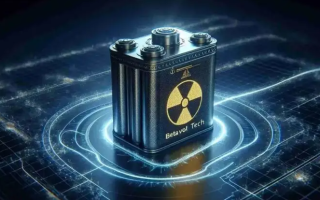
The team of researchers from the University of Ogayo has developed an innovative nuclear battery capable of converting atomic waste into energy, representing a significant achievement in the field of energy storage.
The research group conducted experiments on the initial model of this battery, which demonstrated the ability to collect nuclear radiation for powering microchips, opening up new possibilities for usage in space and deep-sea fields.
The new battery is based on the enhancement of gamma radiation, originating from the now-extinct nuclear fuel, and then its transformation into energy through scintillation crystals, after which this light is converted into energy using solar elements.
Raymond Kauff, professor of mechanical and cosmic engineering at the University of Ogayo and the head of the research, noted that this technology represents a revolution in the ways of dealing with radioactive waste, stating: "We strive to turn something that is considered waste into a valuable source of energy."
The battery does not contain radioactive materials, making it safe for civilian use. However, it is not intended for general use but is rather ideal for powering nuclear systems in studies of space and ocean depths, where it is difficult to utilize traditional energy sources.
The initial model has the size of a sugar cube and is capable of generating 1.5 microwatts of energy, and the team hopes to develop larger versions for producing higher levels of electricity.
Ibrahim Oksuz, one of the researchers involved in the study, emphasized that the concept of the nuclear battery promises much. There is ample room for improvement, and it is expected that this technology will become an important part of energy and sensors in the future.
In addition to this achievement in the USA, China is also working on developing analogous technologies within its 14th five-year plan. The company "Betavolt" based in Beijing announced last year plans to produce nuclear batteries in larger quantities for use in smartphones, unmanned aerial vehicles, and medical devices.














